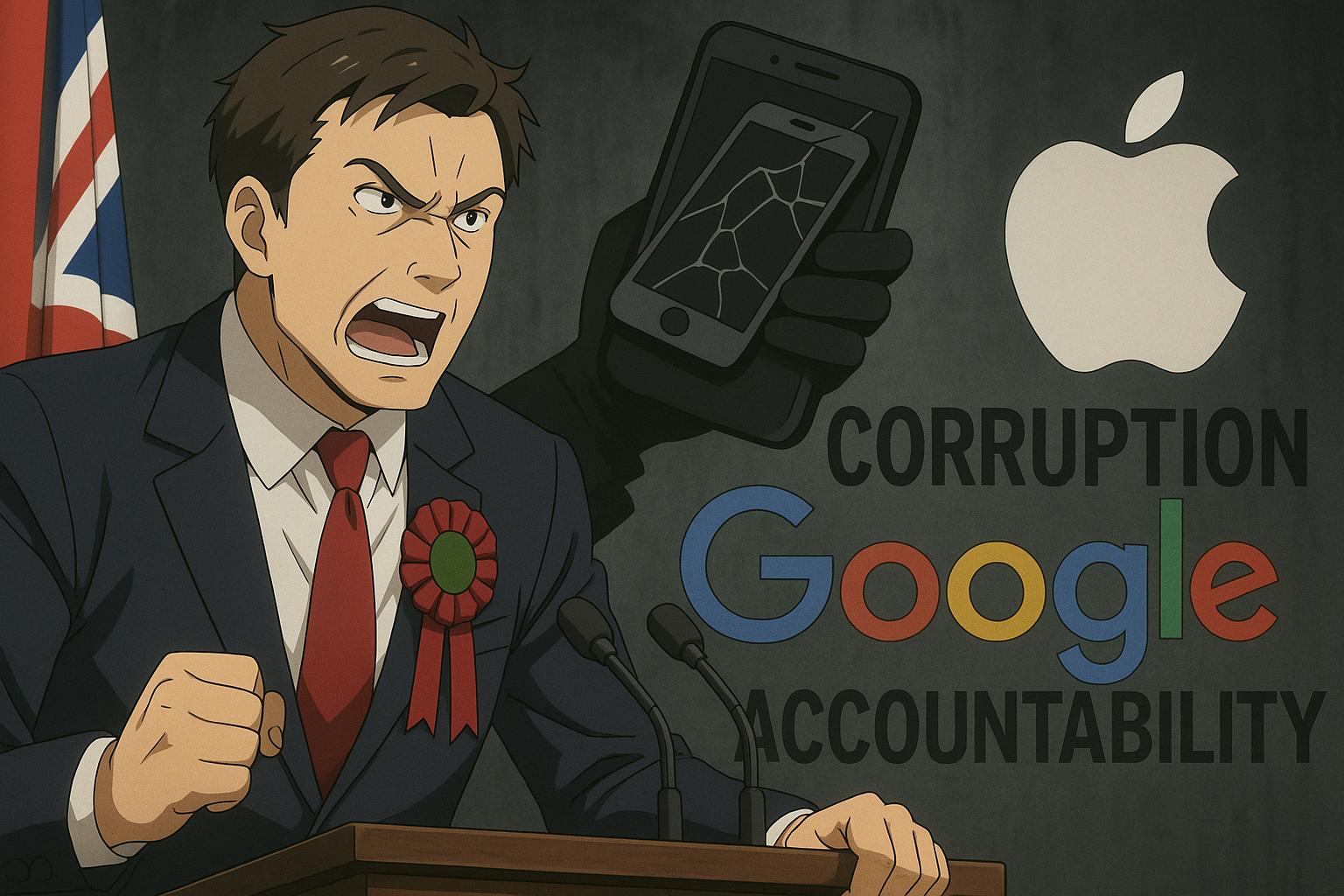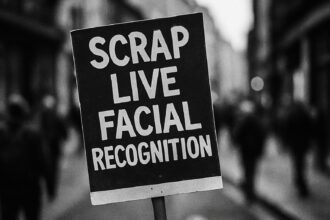Liberal Democrat MP Martin Wrigley has accused Apple and Google of enabling the black market trade in stolen smartphones, alleging their policies allow these devices to remain in circulation and profit from crime. The claims add to mounting legal and regulatory pressures on the tech giants on both sides of the Atlantic.
Martin Wrigley, a member of the UK parliament’s technology committee representing the Liberal Democrats, has made grave allegations against tech giants Apple and Google, accusing them of profiting from crime through the thriving black market for stolen smartphones. During a recent session with representatives from both companies, Wrigley highlighted a troubling reality: policies allowing these stolen devices to remain in circulation enable Apple and Google to continue their sales unhindered. “Apple and Google continue to make profit and continue to sell more phones because these phones are not removed from the system,” Wrigley stated, emphasizing the need for better accountability and measures to tackle the issue.
The concerns raised by Wrigley are part of a broader discourse on the responsibilities of tech companies regarding the security and lifecycle of their products. Recent reports indicate that victims of iPhone theft are increasingly finding themselves in a quagmire where, post-theft, they are unable to regain access to their data due to Apple’s stringent security measures. This has prompted lawsuits, as these victims seek legal recourse to reclaim their accounts and crucial files, further complicating the relationship between the users and these tech behemoths.
These allegations come amidst a backdrop of growing scrutiny on Apple and Google regarding their practices and market power. The US government has also recently filed an antitrust lawsuit against Apple, claiming that the company stifles competition by controlling access to its software and hardware, thereby increasing costs for consumers. This lawsuit, coupled with previous criticisms from various lawmakers—such as those relating to the companies suppressing competition or misusing consumer data—paints a picture of increasing legislative and societal pressures on these firms.
Internationally, the European Commission has accused both companies of violating the Digital Markets Act, which aims to foster competition within the digital landscape. Google, in particular, faces allegations of favouring its own services in search results, while Apple has been under pressure to allow greater interoperability with competitor devices. This regulatory scrutiny reflects a significant push on both sides of the Atlantic to rein in the market dominance held by these tech giants, raising questions about their future conduct in the industry.
As the debate continues, it is evident that Wrigley’s accusations are not isolated but rather part of a complex web of legal, ethical, and market dynamics entwining technology, consumer rights, and corporate responsibility. This evolving scenario calls for close attention as further developments unfold.
 Reference Map:
Reference Map:
Source: Noah Wire Services
- https://www.theguardian.com/uk-news/video/2025/jun/03/mp-accuses-apple-and-google-of-profiting-from-stolen-phones-video – Please view link – unable to able to access data
- https://www.theguardian.com/uk-news/video/2025/jun/03/mp-accuses-apple-and-google-of-profiting-from-stolen-phones-video – Martin Wrigley, a Liberal Democrat member of the UK parliament’s technology committee, has accused Apple and Google of profiting from phone-snatching operations. During a committee session, Wrigley stated that both companies continue to profit and sell more phones because these devices are not removed from the system. Representatives from Apple and Google were present during the committee meeting.
- https://www.theguardian.com/technology/2024/mar/21/us-antitrust-lawsuit-apple – The US government filed an antitrust lawsuit against Apple, alleging that the company has illegally prevented competition by restricting access to its software and hardware. The lawsuit challenges Apple’s control over the iPhone, including services like iMessage and device connectivity. The Department of Justice claims that Apple’s practices have resulted in higher prices for consumers and stifled innovation.
- https://www.theguardian.com/technology/2021/apr/21/apple-google-competition-senate-hearing – During a Senate hearing, Apple and Google were criticised for using their market power to suppress competition. Senator Amy Klobuchar stated that the companies have used their dominance to exclude or suppress apps that compete with their own products and charge excessive fees affecting competition. The discussion highlighted concerns over the companies’ control over app distribution and the impact on consumer choice.
- https://www.theguardian.com/technology/2011/may/11/apple-google-us-mobile-data – Apple and Google faced criticism from US politicians over their privacy policies related to mobile phone use. Senator Al Franken emphasised consumers’ fundamental right to know what data is being collected about them and to decide whether to share it. The hearing addressed concerns over the companies’ collection and use of location data without proper consent.
- https://www.washingtonpost.com/technology/2025/04/20/apple-stolen-iphone-lawsuit-theft/ – Victims of stolen iPhones are seeking legal recourse to reclaim their data, as Apple’s security measures can sometimes prevent users from accessing their accounts after theft. The article discusses cases where individuals have lost access to crucial files and the challenges they face in retrieving their data from Apple. The situation has led to lawsuits aiming to address these issues.
- https://www.theguardian.com/business/2025/mar/19/eu-google-apple-trump-digital-markets-act – The European Commission has accused Google and Apple of breaching the EU’s Digital Markets Act, potentially leading to significant fines. The commission alleges that Google prioritises its own services in search results and that Apple must make its operating systems available to devices made by competitors. These actions are part of the EU’s efforts to promote competition and regulate big tech companies.
Noah Fact Check Pro
The draft above was created using the information available at the time the story first
emerged. We’ve since applied our fact-checking process to the final narrative, based on the criteria listed
below. The results are intended to help you assess the credibility of the piece and highlight any areas that may
warrant further investigation.
Freshness check
Score:
10
Notes:
The narrative is fresh, with the earliest known publication date being June 3, 2025. No earlier versions with different figures, dates, or quotes were found. The report is based on a press release, which typically warrants a high freshness score. No recycled content or discrepancies were identified.
Quotes check
Score:
10
Notes:
The direct quote from Martin Wrigley, ‘Apple and Google continue to make profit and continue to sell more phones because these phones are not removed from the system,’ appears to be original, with no earlier matches found.
Source reliability
Score:
10
Notes:
The narrative originates from The Guardian, a reputable organisation, lending credibility to the report.
Plausability check
Score:
10
Notes:
The claims made in the narrative are plausible and align with previous reports on smartphone theft and the black market. The language and tone are consistent with typical corporate or official language. No excessive or off-topic details were found, and the tone is appropriately serious for the subject matter.
Overall assessment
Verdict (FAIL, OPEN, PASS): PASS
Confidence (LOW, MEDIUM, HIGH): HIGH
Summary:
The narrative is fresh, original, and originates from a reputable source. The claims are plausible and consistent with previous reports on smartphone theft and the black market. No significant credibility risks were identified.













